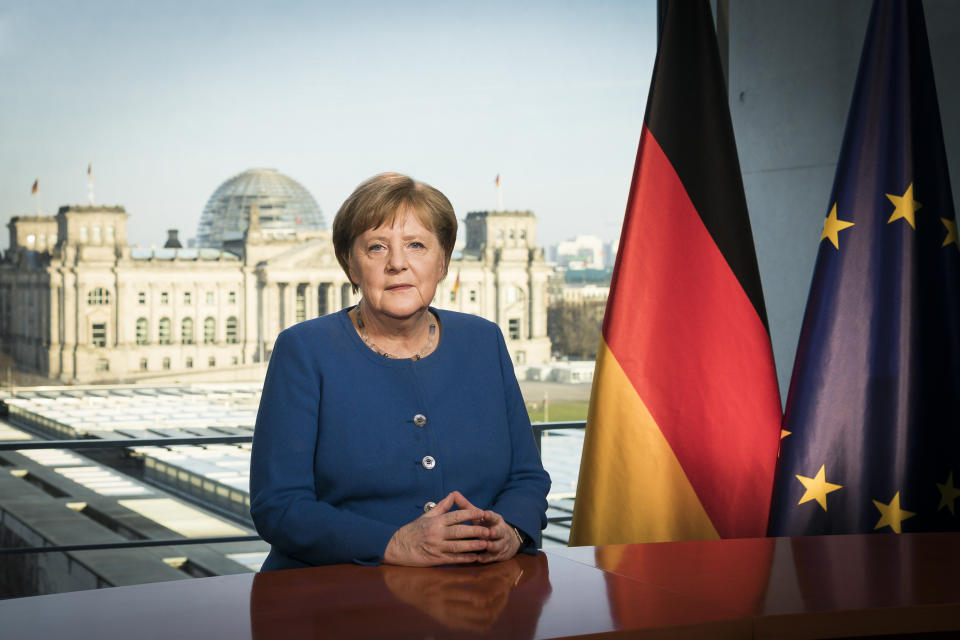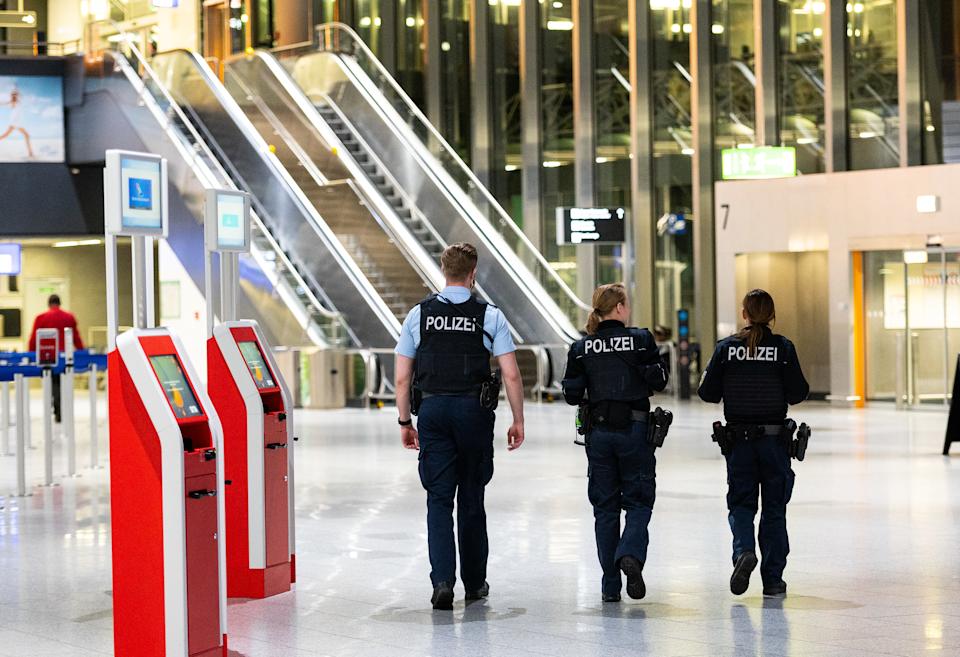Germany's Merkel says COVID-19 is the 'biggest challenge since WWII' in rare national TV address

German chancellor Angela Merkel made the first televised crisis address during her 15 years in office on Wednesday evening (March 18).
Merkel, who normally only goes on television for her New Year’s message, appealed directly to the German people, saying she was reaching out to them “in this unusual way” in order to explain what the government was doing during the coronavirus pandemic. She urged every citizen to take the coronavirus seriously and to help to slow its spread.
“There has been no challenge to our country that depends so much on our joint solidarity since the Second World War,” Merkel said on public broadcaster ZDF.
“We are not doomed to passively accept the spread of the virus,” Merkel said. “We have a remedy against it: we must keep our distance from each other out of respect."
The chancellor did not announce a curfew, as president Emmanuel Macron has done in France.
"We are a democracy,” she said. “We do not live by coercion, but by shared knowledge and participation." However, she added that the government could “rethink and react with other measures at any time” — a strong indication that a curfew has not been ruled out.
As COVID-19 cases in Germany have increased dramatically this month, Merkel has stressed repeatedly that people need to show solidarity with the vulnerable, elderly, and infirm, by staying at home.
“I know how difficult this is... in times of need we want to be close to each other, but at the moment the opposite is necessary,” Merkel said tonight.
She assured the nation that the food supply will be safe, and that if shop shelves are empty for a day, they will be replenished. She said that keeping food in stock has always been sensible, but within reason. Bulk-buying, however, “was senseless and goes completely against solidarity.”
Merkel earlier described the coronavirus pandemic “more extraordinary than the banking crisis” of 2008, because this crisis is about saving lives as well as economic survival.
On Monday (March 16), she announced a sweeping package of measures to try and slow the spread of the coronavirus, including shutting all non-essential shops and businesses. Police will start enforcing the restrictions as of today.
READ MORE Coronavirus: Merkel announces sweeping shutdown in Germany
The number of coronavirus infections in Germany now totals over 10,000, with 26 reported deaths. The Robert Koch Institute raised the risk level to “high” and warned that if people did not heed the government rules and stay at home, then up to 10 million people could be infected in the next two-to-three months.
Merkel said that the Government is “doing everything it can to cushion the economic impact - and above all to save jobs,” noting that the situation is already difficult for shops, restaurants and freelancers and is set to get worse in the coming weeks. "We can and will do everything necessary to help our entrepreneurs and workers through this tough test," she said.
The government announced a massive fiscal aid package last week, with a focus on tax relief and granting loans to prevent bankruptcies.
READ MORE: Germany to offer companies unlimited credit to withstand coronavirus crisis
Airlifts and entry bans

Germany, which has now shut land borders with all but two if its neighbouring countries, is also implementing the 30-day entry ban on non-EU citizens that was agreed by European Union leaders earlier this week. Authorities turned several hundred people away — and back onto their planes— in Frankfurt airport today.
Foreign minister Heiko Maas said the government would spend €50m flying home tens of thousands of German tourists. Maas told Deutsche Welle yesterday that the repatriation would take a few days and that the government had chartered planes from airlines, mainly Lufthansa, to bring people home.
Lufthansa told the Bild tabloid on Tuesday that is is preparing to use its planes for a potential airbridge (“Luftbrücke”) to bring in supplies to Germany. That last time an “airbridge” was needed in Germany was in 1948-1949, when the Allies flew emergency supplies into West Berlin to keep the population alive after it was sealed off by the Soviet army.
Berlin is now planning to build an emergency medical facility in the large Messe exhibition grounds in the west of the capital, that would be able to handle 1,000 coronavirus patients.
